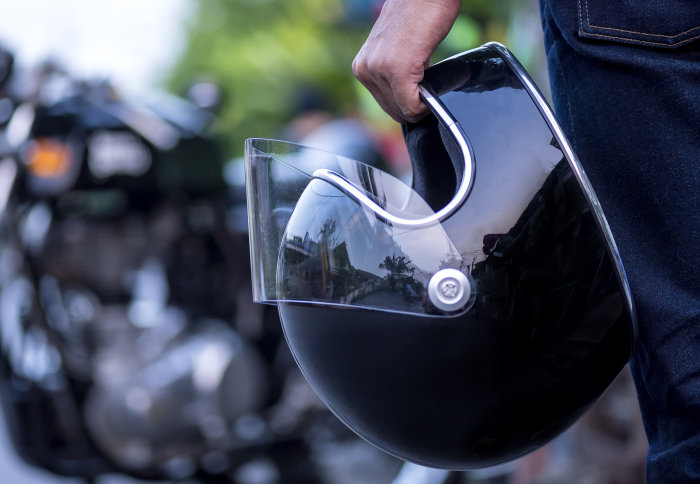Safer brains and mechanical hearts: News from the College

Here’s a batch of fresh news and announcements from across Imperial.
From better materials for crash helmets, to a bioreactor which mimics heartbeats, here is some quick-read news from across the College.
Better helmets, safer brains
 Researchers at Imperial have tested the ability of new lightweight and cost-effective materials to prevent traumatic brain injury (TBI). Using physical impact simulations and computer models, they tested viscoelastic materials used as liners in motorcycle helmets. These materials are designed to reduce strains and stresses, and could help better protect the brain during impact.
Researchers at Imperial have tested the ability of new lightweight and cost-effective materials to prevent traumatic brain injury (TBI). Using physical impact simulations and computer models, they tested viscoelastic materials used as liners in motorcycle helmets. These materials are designed to reduce strains and stresses, and could help better protect the brain during impact.
The team, from the Dyson School of Design Engineering and the Division of Brain Sciences, found that the materials reduced the maximum impact, particularly for frontal impacts at lower speeds. This subsequently reduced strain on the brain and the probability of TBI.
Read the full paper in Scientific Reports.
Cool microscopes
Dr Richard Henderson, from the MRC Laboratory of Molecular Biology, delivered the Department of Life Science’s annual Sir Ernst Chain lecture this week. Dr Henderson talked about the work that landed him the 2017 Nobel Prize in Chemistry: developing cryo-electron microscopy (cryoEM). The technique has revolutionised structural biology, allowing scientists to image biological molecules in 3D and in incredible detail – nearly down to the level of individual atoms.
You can watch the whole lecture in the video above, where Dr Henderson talks about recent triumphs but also ways the technology could be improved even further in the future.
The side effect of side effects?

Is the sheer volume of side effects listed on drug packaging putting patients’ health at risk?
Speaking to the BBC’s One Show this week, Professor Peter Sever describes how the potential damage from the nocebo effect, where patients may experience more negative side effects from medications because they expect to, risks a medical emergency.
“Worried by the possible side effects that the read about on the packaging inserts, people are not taking their tablets,” explains Professor Sever. “What that means in terms of statins is that patients who would normally have heart attack and strokes prevented are not doing so, because they’re not taking the tablets.”
Watch Professor Sever’s interview (from 2min 30secs)
Tiny mechanical heartbeats
 NHLI researchers have created a bioreactor which mimics the mechanical forces of heartbeats on tiny pieces of heart tissue.
NHLI researchers have created a bioreactor which mimics the mechanical forces of heartbeats on tiny pieces of heart tissue.
The setup enables the team to generate similar forces to those experienced by tissue in the body. The hope is that the kit could provide a better understanding of heart conditions and pave the way for new treatments.
Fotios Pitoulis, who is based in Cesare Terracciano's lab, said: “We now have a unique tool to study the mechanical and electrical properties of heart tissue, as well as long-term changes that happen at the molecular level within the context of healthy heart or disease.”
The findings were presented at the Biophysical Society Annual Meeting.
–
Want to be kept up to date on news at Imperial?
Sign up for our free quick-read daily e-newsletter, Imperial Today.

Article text (excluding photos or graphics) © Imperial College London.
Photos and graphics subject to third party copyright used with permission or © Imperial College London.
Reporter
Andrew Youngson
Communications Division
Hayley Dunning
Communications Division
Ryan O'Hare
Communications Division